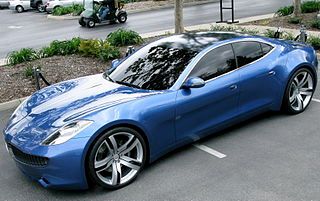China's Role in the Electric Vehicle Market
Alysha Webb knows a great deal about the electric vehicle market and the role that China plays in it. I’ve met her at numerous auto shows, and I look forward to reading her always-informative blog posts.
But her current piece on Fisker Automotive and how the Chinese company Wanxiang’s buyout of bankrupt A123 (lithium ion battery manufacturer) might affect its future leaves me shaking my head.
She writes:
Wanxiang’s purchase of battery maker A123 may turn out to be the best thing that ever happened to Fisker Automotive. Huh? Yeah, now Fisker not only has a battery supplier, but I bet Wanxiang will give Fisker some kind of bridge loan to keep it afloat while it seeks a “strategic partner” i.e. some company with cash to invest in the struggling plug-in hybrid electric company. But Fisker still needs cash, fast. And it is sniffing around China to find some.
Development of its next model, the Atlantic, is stalled awaiting funding. Production of its current model, the Karma, was also stalled as Fisker waited to hear the fate of its battery maker, A123. (and it didn’t have any money…) Now it knows A123 will survive. “We will start to re-negotiate the contract for batteries with Wanxiang in the very near future now that the sale is complete,” Fisker spokesman Roger Ormisher told me.
Alysha: do you believe that the answer to Fisker’s woes is tied to its inability to develop its next model? What about its inability to sell and deliver its current model? Or that the real issue here is battery supply? What’s the matter with the far more obvious explanation: they’ve half-built a super-expensive, super-complicated car that virtually no one wants.
But, as implied above, I respect you, and I’m listening. If you can convince me of any fraction of your points here, drinks are on me, next time I see you in Los Angeles or Detroit.


“What’s the matter with the far more obvious explanation: they’ve half-built a super-expensive, super-complicated car that virtually no one wants.”
Historically speaking, that is nothing new. Dying car manufacturers have many times produced a special car, though not necessarily complicated, at considerable expense, thinking that it might save them.
Hudson produced the Hudson Italia and the Hudson Jet.
Studebaker produced the Avanti.
Packard produced the Panther (about four of them) and the limited production Caribbean.